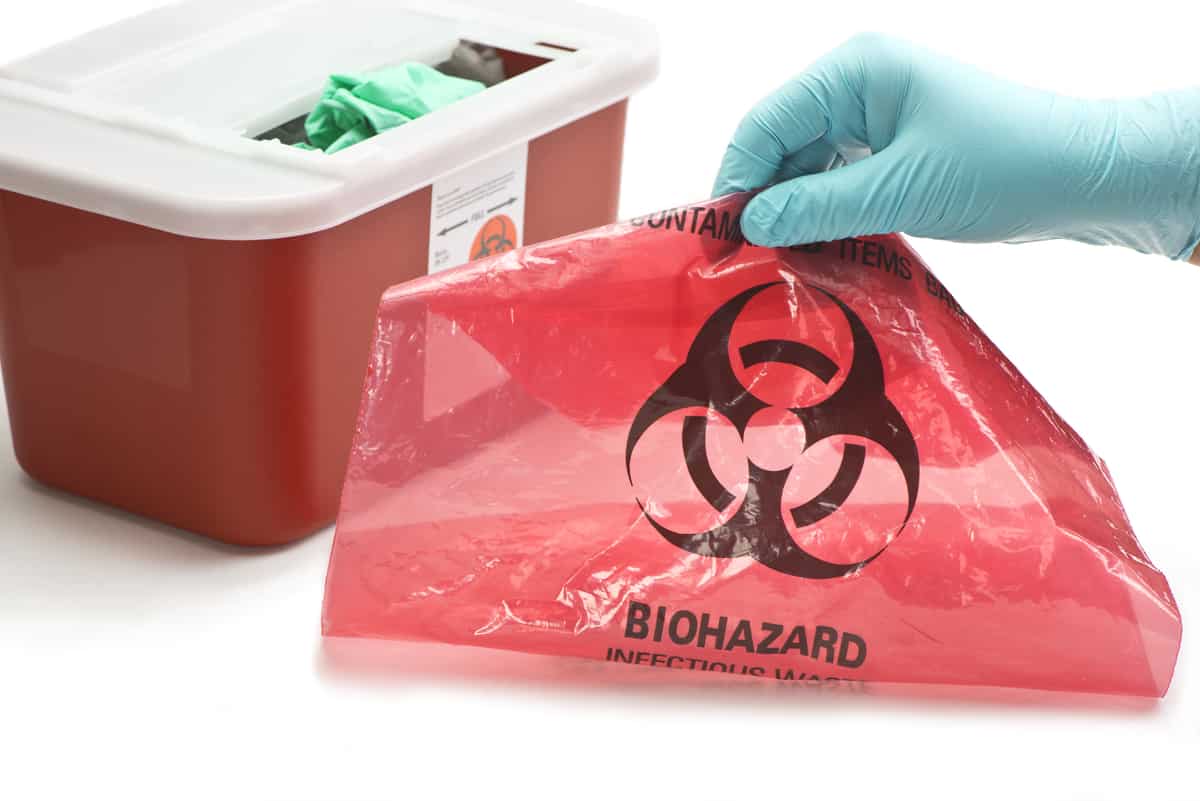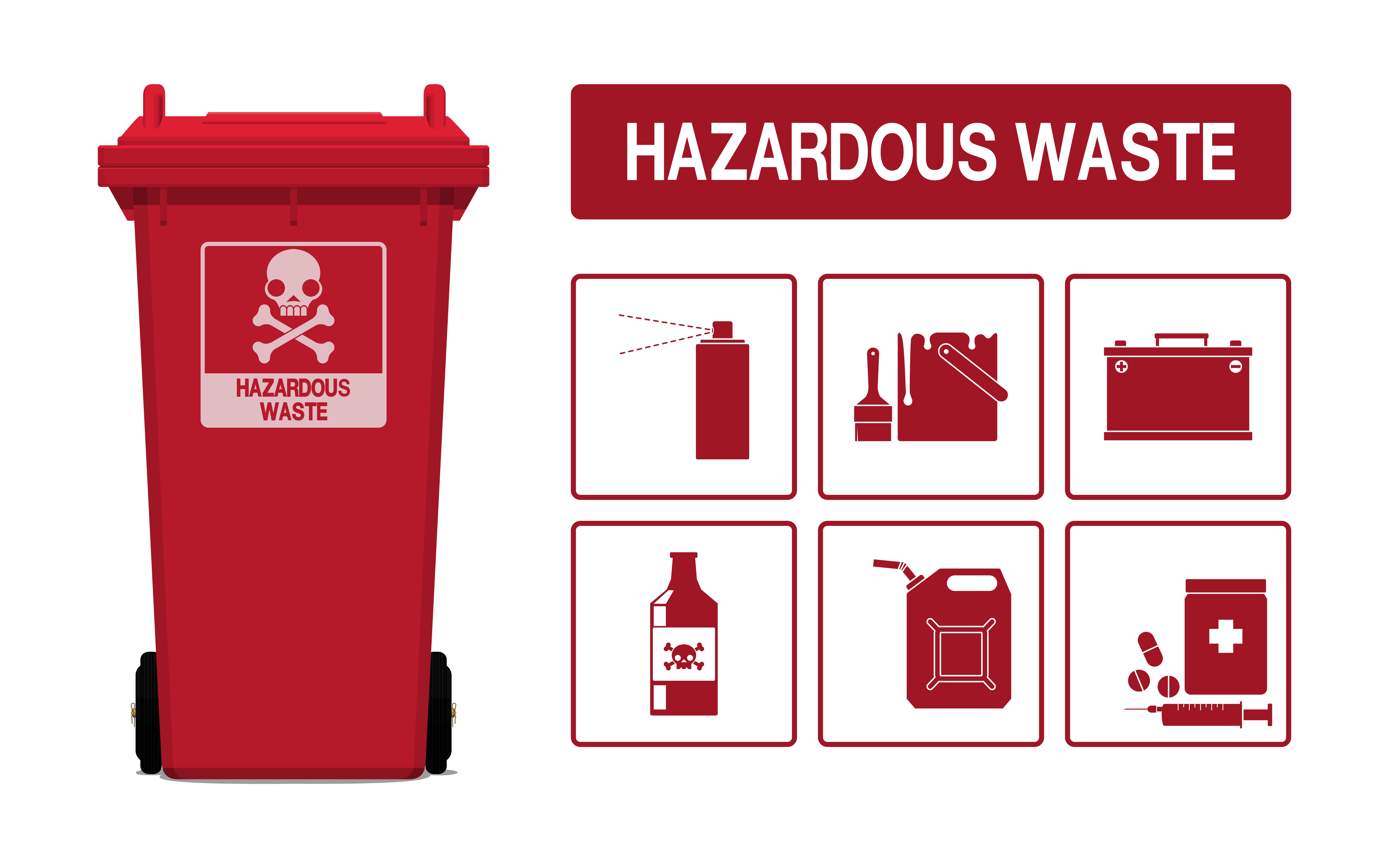Your Relied On Companion: Medical Waste Removal Services Tailored to Your Demands
Your Relied On Companion: Medical Waste Removal Services Tailored to Your Demands
Blog Article
The Relevance of Appropriate Medical Waste Disposal: An Overview for Health Care Facilities
Proper clinical waste disposal is a critical element of healthcare facility administration, making certain the safety and wellness of people, staff, and the environment. From comprehending the different groups of clinical waste to complying with regulative requirements, healthcare facilities should embrace reliable waste partition techniques and pick ideal disposal approaches.
Recognizing Clinical Waste Categories
Recognizing clinical waste groups is crucial for proper disposal in healthcare centers. Clinical waste is a wide term that includes different kinds of waste generated in healthcare settings, such as research laboratories, facilities, and health centers. Classifying medical waste helps make certain that it is managed, kept, and disposed of safely and according to relevant guidelines.
There are several groups of clinical waste that healthcare centers need to be knowledgeable about. These groups include infectious waste, sharps waste, pharmaceutical waste, chemical waste, and contaminated waste (medical waste disposal services with WasteX). Each classification has specific qualities and calls for various disposal methods to lessen the threat of harm to healthcare employees, people, and the environment
Infectious waste, for instance, describes waste polluted with possibly contagious products, such as blood, body liquids, and tissues. Sharps waste includes needles, syringes, and other sharp items that can trigger injury or transfer infections. Pharmaceutical waste contains run out or extra drugs, while chemical waste is composed of hazardous chemicals made use of in clinical treatments. Last but not least, radioactive waste includes products contaminated with contaminated compounds, such as nuclear medication materials.
Conformity With Regulatory Demands
Health care centers must make sure compliance with regulative needs for correct clinical garbage disposal. Regulatory bodies, such as the Epa (EPA) and the Occupational Safety And Security and Wellness Administration (OSHA), have established laws and guidelines to guard public wellness and the atmosphere. These laws detail the correct handling, storage, transportation, and disposal of clinical waste.
Compliance with governing demands is important for medical care facilities to prevent legal penalties, reputational damage, and prospective injury to human wellness and the setting. Failure to abide with these policies can result in penalties, legal actions, and also the suspension or cancellation of running licenses.
To guarantee conformity, health care centers ought to establish detailed waste management programs that include team training, appropriate waste partition, and the use of suitable containers and labels. Regular audits and evaluations must additionally be carried out to determine any type of non-compliance problems and resolve them without delay.
It is essential for medical care centers to remain up to date with modifications in regulations and update their waste administration techniques accordingly. This can be accomplished by proactively checking updates from regulatory bodies and taking part in training programs and workshops.
Applying Reliable Waste Partition Practices
To ensure correct medical garbage disposal, health care facilities need to apply reliable waste segregation practices. Waste segregation is an essential action in the general waste monitoring process, as it helps decrease the danger of infection, protects against cross-contamination, and ensures the safe disposal of different sorts of waste. Reliable waste partition practices involve dividing medical waste into different groups based upon its characteristics and prospective dangers.
One typical method is the segregation of sharps waste, such as scalpels and needles, from various other sorts of clinical waste. Sharps waste should be positioned in puncture-resistant containers to stop injuries and potential infections. Furthermore, dangerous waste, such as chemicals and pharmaceuticals, ought to be divided from general clinical waste to stop environmental contamination.
Correct labeling and color-coding of waste containers are vital for efficient waste partition. Clear and visible tags should be positioned on each container to indicate the kind of waste it consists of and any type of special handling demands - medical waste disposal services with WasteX. Furthermore, color-coding can be made use of to distinguish between various waste categories, making it simpler for healthcare staff to determine and get rid of of waste correctly
Regular training and education and learning for healthcare personnel is critical for the effective he said application of waste partition techniques. Employee ought to be educated on the different waste groups, proper segregation techniques, and the relevance of following waste monitoring procedures. This will aid guarantee conformity and consistency in waste partition methods throughout the center.
Picking Appropriate Disposal Approaches
Correct selection of proper disposal techniques is important in making certain the safe and ecologically responsible management of clinical waste in health care centers. Medical care facilities create a range of medical waste, consisting of sharps, transmittable waste, pharmaceutical waste, and chemical waste - medical waste removal. Each kind of waste requires certain disposal techniques to minimize the danger of contamination, injury, and environmental harm
One common disposal approach for clinical waste is incineration. Incineration entails the controlled burning of waste at high temperature levels.

Chemical disinfection is an additional method made use of for sure sorts of clinical waste, such as pharmaceutical waste. This approach makes use of chemicals to neutralize or ruin impurities. Nevertheless, it is very important to choose chemicals that are ecologically pleasant and secure.
In some situations, land fill disposal may appropriate for non-hazardous medical waste (medical waste disposal services with WasteX). Appropriate partition and packaging are critical to protect against leak or contamination.
Ultimately, health care centers have to thoroughly assess the features of their medical waste and pick suitable disposal techniques that prioritize safety and security, environmental management, and regulative conformity. Normal training and tracking are necessary to guarantee that medical care team adheres to appropriate disposal methods.

Training and Educating Personnel on Appropriate Disposal Procedures
Team education and training play a critical duty in making certain the official statement proper disposal of medical waste in medical care centers. It is crucial that all staff participants, including physicians, nurses, professionals, and assistance staff, obtain thorough training on correct disposal treatments. This training ought to cover the different sorts of clinical waste, their possible hazards, and the proper techniques for handling, segregating, and getting rid of them.
Among the main objectives of personnel education and learning and training is to ensure that all medical care experts comprehend the significance of proper disposal treatments and the potential consequences of inappropriate waste monitoring. They require to be familiar with the risks related to medical waste, such as the transmission of infections and the contamination of the environment. medical waste removal near me. By comprehending these dangers, team member will certainly be much more motivated to adhere to appropriate disposal methods and take the needed precautions to shield themselves, their coworkers, and the community
Training must likewise cover the use of personal safety devices (PPE) and the correct techniques for taking care of clinical waste. Team member must be informed on exactly how to determine and set apart different types of waste, such as sharps, contagious waste, and dangerous chemicals. They must likewise be educated on the correct use waste containers, such as sharps containers and biohazard bags, as well as the value of labeling and securing these containers appropriately.
Moreover, personnel education and learning and training need to include normal updates and refresher course training courses to guarantee that medical care experts stay informed regarding the most up to date laws and ideal techniques in medical garbage disposal. This recurring education and learning is critical to maintain a high level of recognition and compliance among employee.
Verdict
Finally, proper medical garbage disposal is of utmost importance for medical care facilities. Comprehending the various categories of medical waste and adhering to regulative demands guarantees the security and well-being of both medical care workers and the public. Implementing efficient waste segregation techniques and picking appropriate disposal methods are essential in stopping the spread of infectious illness and safeguarding the environment. Last but not least, training and educating team on correct disposal treatments is important for preserving a clean and risk-free healthcare facility.
From recognizing the various categories of clinical waste to abiding with regulatory demands, medical care facilities have to take on efficient waste segregation practices and select appropriate disposal techniques. These classifications include contagious waste, sharps waste, pharmaceutical waste, chemical waste, and radioactive waste.To ensure appropriate clinical waste disposal, health care centers need to execute effective waste partition techniques. Waste segregation is a crucial action in the overall waste monitoring process, as it aids lessen the danger of infection, stops cross-contamination, and ensures the safe disposal of different kinds of waste. Healthcare centers create a range of medical waste, consisting of sharps, transmittable waste, pharmaceutical waste, and chemical waste.
Report this page